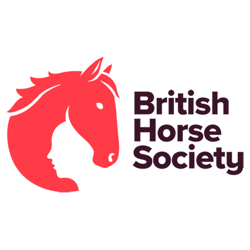In conjunction with

Time is of the essence in an emergency, especially if the horse’s condition is severe and they require a referral to a veterinary hospital. Any delay could affect the outcome for the horse. Preparing an emergency care plan can help you make informed decisions and provide an authorised person with your wishes and vital contact information only in the event of you being uncontactable.
Download and complete your free emergency care plan
We recommend that you:
- Review and update your emergency plan annually
- Review your plan if there’s a change to your horse’s health that would impact the decisions you’d originally made
- Nominate an authorised representative to act on your behalf, if you’re uncontactable in an emergency
- Notify your vet and yard owner of your emergency plan and authorised person. If you have a yard manager, ideally they’d be the authorised person where possible
- Make sure your emergency plan is readily available.
Follow our three-step plan:
1. Is referral to an equine hospital an option for your horse?
chevron-down
chevron-up
Depending on the type of injury or illness, your vet may be able to offer treatment to your horse at the yard. However, some horses will require referral for further tests, intensive medical treatment and possibly surgery. You’ll need to decide if hospitalisation or surgery is a suitable option for you and your horse’s circumstances, or whether euthanasia would be a suitable alternative over intensive treatment.
Factors to consider:
- Will your horse load and travel safely to a hospital? How far away is the nearest hospital to your yard?
- How will your horse cope with hospitalisation and box rest?
- Can you afford the costs of imaging, surgery, recovery and any potential complications?
- Can you provide the aftercare and rehabilitation for your horse and the associated costs?
- Does your horse have any underlying health problems or other complicating factors?
During an emergency your vet will likely advise you or your nominated authorised person on:
- Your horse’s chance of survival and prognosis
- Your horse’s quality of life post recovery
- Whether your horse is suitable for referral.
2. Are finances in place?
chevron-down
chevron-up
Referral treatment can be very expensive, varying from hundreds to thousands of pounds. Having insurance for your horse can make it easier to make decisions, but there are a number of points to consider.
If you don’t have veterinary insurance cover:
- What can you realistically afford?
- Will your funds cover the treatment, rehabilitation and any potential complications?
- How easily accessible are the funds?
If you’ve got veterinary insurance cover:
- Is your insurance policy still valid?
- What’s your maximum insurance cover?
- What excess do you have to pay on your insurance policy?
- Is this insurance cover for veterinary fees and/or other health costs (e.g. farriery/physiotherapy/rehabilitation)?
- Are any conditions or diseases excluded for your horse?
- Are stabling, transport or other associated costs covered?
- Does the insurance cover injury, illness, loss of use and/or death of your horse?
- Will the insurance company pay the fees directly or do you have to pay upfront and reclaim?
- Do you need to have funds immediately available for deposit/upfront payment?
3. Can you get your horse to the equine hospital?
chevron-down
chevron-up
Do you have an emergency transport plan?
- If you have your own transport, is it currently insured, road worthy and ready to use?
- If you don’t have your own transport, consider:
- Who would you contact in an emergency?
- Do you have their contact details? Are they experienced, reliable and available to attend 24/7?
Are you ready to leave immediately?
- Will you need assistance to load and travel your horse?
- Is your horse’s passport readily accessible? (In an emergency situation vet practices will accept your horse without this, but you’re advised to always travel with it).
Sharing your plan
Once you’ve considered the options for your horse, we advise you complete an emergency care plan which can be shared with your yard manager and/or authorised representative. This can be kept at your yard or field, so it’s easily accessible if anyone discovers your horse in distress. Emergencies can often be stressful and difficult to manage alone, so having the support of a friend or family member can be beneficial.
If you’re loaning a horse, do you have a loan agreement in place? Does this cover who’s responsible for emergency decision-making and finances?
Potential costs
It’s important to be realistic with what you’re able to afford. Complications, imaging, prolonged hospital stays, medication and aftercare can all quickly add to a bill which can exceed the maximum covered in an insurance policy.
The average cost of medical treatment for colic in a hospital in 2023 was £2,265 with a range of £683-£13,762. The average cost of colic surgery was £8,690 with a range of £4,764-£20,3431. These figures don’t include costs incurred before and after referral to the hospital.
Equine Grass Sickness
The BHS supports the Moredun Institute and provides funding towards their Biobank to collect samples from horses with suspected Equine Grass Sickness to allow for further research to help find a cure to this awful disease. Please consider the collection of samples via biopsy from your horse if grass sickness is a possibility.
Euthanasia
Prior thought and decision making can ease the process of euthanasia, and in your absence, make sure your wishes are considered in an emergency, alongside veterinary advice. Providing your preferred method of euthanasia and removal on your emergency care plan can assist during a difficult time.
Our Friends at the End support scheme offers free help and advice to anyone before, during and after the loss of their horse or pony.
References
chevron-down
chevron-up
1. Barker, I., & Freeman, S. L. (2024). Assessment of costs and insurance policies for referral treatment of equine colic – What has changed in the last 5 years. Veterinary Record, 185(16), 508-508.
2. Freeman, S., et al (2024). Horse owners' and veterinary practitioners' experiences of decision-making for critical cases of colic. Authorea Preprints.
Get in touch – we’re here to help
The Horse Care and Welfare Team are here to help and can offer you further advice with any questions you may have. Contact us on 02476 840517* or email welfare@bhs.org.uk – You can also get in touch with us via our social media channels.
Opening times are 8:35am-5pm from Monday-Thursday and 8:35am-3pm on Friday.
*Calls may be recorded for monitoring purposes.







